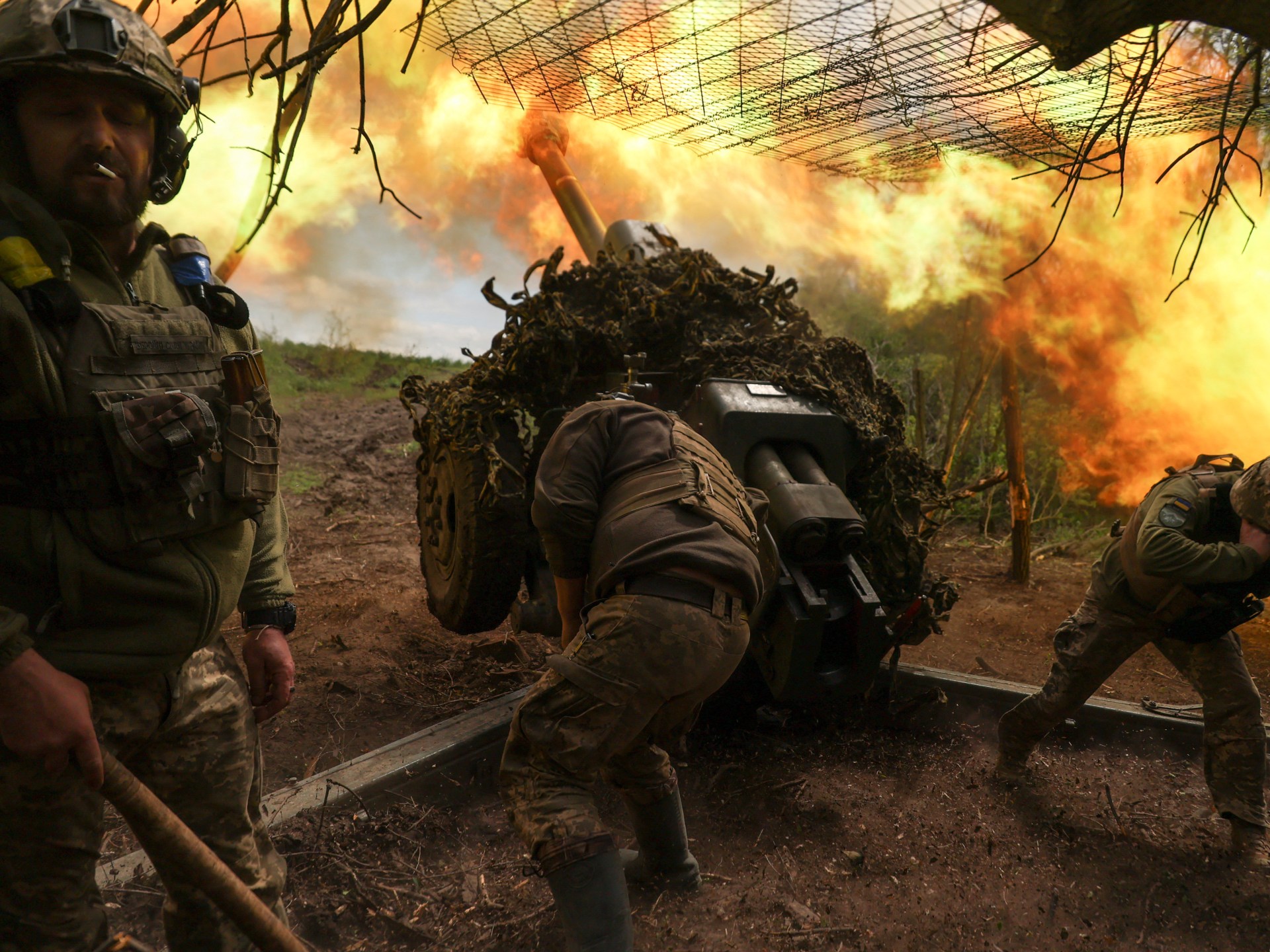Russian President Vladimir Putin has ordered a withdrawal from a long-standing military treaty with Europe, as Kiev confirmed that its forces launched counterattacks in Pakhmut, the epicenter of fighting in the east of the country, forcing Russian forces to retreat in some places.
According to a decision published by the Kremlin on Wednesday, President Putin ordered the formal withdrawal from the Treaty on Conventional Armed Forces in Europe, and assigned Deputy Foreign Minister Sergei Ryabkov to lead the debate in parliament to implement this, as the withdrawal bill has not yet been submitted to the Russian State Duma.
The Treaty on Conventional Armed Forces in Europe sets a ceiling on the concentration of heavy weapons on the European continent. This includes tanks, infantry fighting vehicles, heavy artillery, aircraft and helicopters.
Moscow was a signatory to the agreement in 1990, but suspended most of the agreement's provisions in 2007, although since 2015, a year after Russia annexed Crimea, Russia no longer participates in the meetings of the advisory group.
After the start of the Russian war in Ukraine in February 2022, Putin called on his country's defense companies to significantly boost production.
Battles of Bakhmut
A senior Ukrainian military official confirmed on Wednesday that Kiev forces had launched counterattacks in Pakhmut, where the fiercest fighting in months has been raging, forcing Russian forces to retreat in some places.
The battle for Pakhmut, a devastated city controlled by Russian forces about 95 percent, is the longest and bloodiest since the start of the Russian offensive in 2022.
Russian forces have been trying for months to capture Pakhmut (Reuters)
While Russian forces, especially fighters of the Wagner paramilitary group, have gradually and slowly taken control of territory in Bachmut in recent months, Ukrainian resistance remains fierce in the west of the city.
The commander of the ground forces of the Ukrainian army, Oleksandr Sersky, said via Telegram, "We are launching effective counterattacks. In some areas of the front, the enemy could not resist the attack of Ukrainian defenders and withdrew up to two kilometers."
Wagner fighters there have in some places been replaced by units of the Russian regular army, which are less prepared, he said. He added that Ukraine's defense forces "reliably maintain the front line and prevent the enemy from advancing. The battle of Bachmut continues," he said.
Ukrainian Deputy Defence Minister Ghana Malyar confirmed via Telegram that Kiev forces "did not lose a single position in Pakhmut during the day."
On Tuesday, Wagner Chairman Yevgeny Prigozhin, who is locked in an open conflict with Russia's Joint Chiefs of Staff, accused Russian army soldiers of fleeing their positions in Pakhmut.
Prigozhin had complained on several previous occasions about the lack of ammunition for his men, accusing the Russian military leadership of deliberately causing the shortages and threatening to withdraw from Bachmut if the matter was not resolved.
For its part, Ukraine assures readiness for a major counterattack, the first steps of which could have begun.
Counterattack
While there has been talk in recent weeks about a Ukrainian counterattack, Ukrainian Foreign Minister Dmytro Kuleba warned on Wednesday that too much is expected from the upcoming Ukrainian army's counterattack, echoing comments recently made by Ukraine's defense minister.
Kuleba said in an interview with the German newspaper "Bild": "Do not consider this counterattack as the last, because we do not know what will result from it."
"Only if this attack succeeds in liberating Russian-occupied territory will it be the last, but if not, it means we have to prepare for the next counterattack," he said.
Kuleba stressed that Ukraine will need more weapons to fight against the Russian occupation forces. "Because winning the war needs weapons, weapons and more weapons," he said.
He also said Russia would not hesitate to try to kill his country's president, Volodymyr Zelensky, when given the chance.

